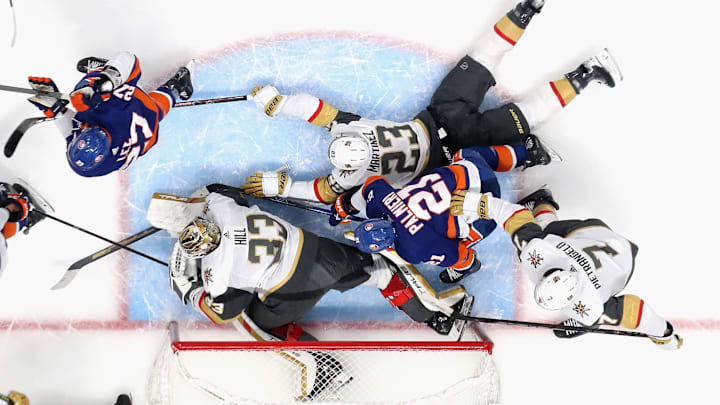Sometimes, a team can get careless and put too many men on the ice. There will be players such as Alex Pietrangelo entering the rink, giving the Vegas Golden Knights a brief 6-on-5 advantage (or more lopsided). That can lead to a 5-on-4 advantage for the other team, leaving the Golden Knights to stop a power play from happening. That's bad news for Adin Hill, who's looking to rest easy in the net.
Such careless penalties can derail a team's hopes of winning a game. It can leave them without much help on the front lines, making them more likely to allow a goal. That's never good news, which is why it helps to watch who's coming on and off the ice. Carelessness can hurt a team's momentum and lead to worse things (i.e. a losing streak).
But those are worst-case scenarios, for a "too many men on the ice" penalty is only a two-minute bench minor. So what are the stipulations for determining a "too many men on the ice" call? Who goes in such an instance? No, the Weather Girls aren't singing this as the penalty happens. But here's what the penalty means in the game of hockey.
The definition of "too many men on the ice"
"Too many men on the ice" is determined when one team has a distinct advantage in the number of players on the ice. That can create problems for the opposing team, leaving them to fend for themselves. As mentioned, a bench minor is assessed after the call, with the head coach designating a player to go. You're probably asking...
"How does the ref call the penalty?"
There are a couple of simple explanations, dear reader. One is a small grace period where the referees grant a team time to make a line shift, usually around three seconds. If that grace period passes and one of the extra players hasn't gone to the bench, the penalty will be assessed. It can also be handed out if there are more than five players on the ice when one player touches the puck without a goaltender pulled. There's no grace period with this since the player he's replacing hasn't fully left yet.
The Vegas Golden Knights must be careful with getting such penalties this season. That goes for everybody on the team, whether it's Alex Pietrangelo or Keegan Kolesar. The consequences could be Adin Hill being at a disadvantage and dealing with a penalty kill or worse: Having a song stuck in his head.
